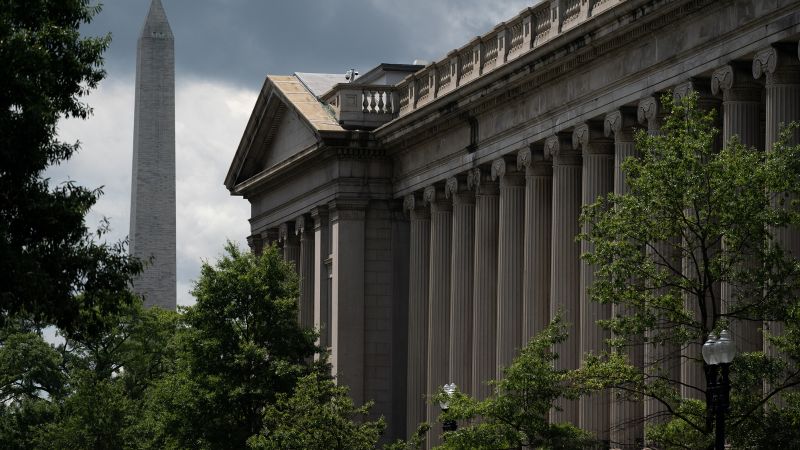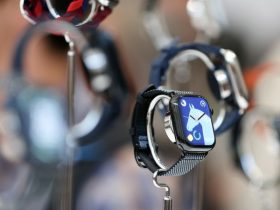A version of this story first appeared in CNN Business’ Before the Bell newsletter. Not a subscriber? You can sign up right here. You can listen to an audio version of the newsletter by clicking the same link.
The bond market is back in the doldrums after a promising start to 2023.
The US economy and labor market have shown few signs of cracking, even after the Federal Reserve’s punishing campaign to tame inflation sent interest rates to their highest level in 22 years. The surprisingly strong economy has led investors to worry that the Fed will keep rates higher for longer, which, in turn, drove US Treasury yields higher.
The spike in yields has soured investors’ mood on Wall Street over the past few months after what had been a strong first half of the year for stocks. The Dow Jones Industrial Average index on Tuesday gave up the last of its 2023 gains, and is now roughly flat for the year. The S&P 500 and Nasdaq Composite indexes are still positive for the year, but have each fallen about 4% over the past three months.
As stocks have declined and bond yields have soared, bond prices have tanked, causing pain for investors who bet that the Fed would curtail its rate-hiking campaign earlier this year. The iShares Core US Aggregate Bond exchange-traded fund, which tracks the performance of US investment-grade bonds, is on pace to end 2023 lower. If it ends lower for the year, that would mark the first time the fund has seen three consecutive annual declines.
“Investors really came into this year positioned for a recession,” said Noah Wise, senior fixed income portfolio manager at Allspring Global Investments.
But the economy has stayed strong, and expectations that it will accelerate next year as rates stay higher for longer has spurred the surge in yields, says Matt Miskin, co-chief investment strategist at John Hancock Investment Management. Rising yields reflect investor confidence in the economy’s growth.
Analysts expect 12% growth in earnings year-over-year in 2024, according to FactSet. Miskin says expectations that corporate earnings will bounce back to that extent may be overly hopeful.
“A lagged impact in higher rates is going to lead to weaker growth in the quarters ahead,” he said.
The Fed last month signaled that it will likely raise rates once more this year and keep them elevated through 2024, accelerating the surge in yields. Treasury yields rose to their highest level in over a decade earlier this week, before edging lower on a cooldown in employment data on Wednesday.
A flurry of new government debt issuance has also inundated the bond market, pushing prices downward. The US Treasury said in July that it expects to borrow roughly $1 trillion during the third quarter ended in September, the largest debt issuance during a third quarter.
Bond prices cratered in 2022 after the Fed began drastically raising near-zero rates to tame runaway inflation. As new bonds were issued at higher rates, the value of old ones fell, since they gave holders smaller interest payments and thus lower returns on their investment. That triggered a steep selloff in bonds.
US Treasury bond prices jumped earlier this year after the collapse of several regional lenders led traders to bet that the Fed would soon ease its aggressive pace of interest rate hikes. Investors also sought out the safety of virtually risk-free government debt as fears of possible bank contagion swept markets.
Wise says that despite the bond market’s seeming optimism about the economy, he doesn’t believe a recession is off the table. He expects bonds to become attractive again next year if the economy deteriorates and investors seek less risky assets with high payoff.
“Next year, you’re going to have to think about fundamentals that are going to support a larger allocation to fixed income,” Wise said.
In their opening statements to a newly sworn-in jury in Manhattan federal court on Wednesday, lawyers laid out previews of their cases, offering two divergent narratives for the collapse of Sam Bankman-Fried’s crypto empire.
Assistant US Attorney Nathan Rehn painted a picture of a villainous, greedy businessman whose boundless appetite for wealth and power led him to steal billions of dollars in customer funds, reports my colleague Allison Morrow.
“He had wealth, he had power, he had influence,” Rehn said. “But all of that — all of it — was built on lies.”
Rehn reiterated the government’s accusations that Bankman-Fried, known as SBF, used his crypto exchange, FTX, as his own personal piggy bank, using the money he took from customers to enrich himself and his family, buy luxury beachfront property in the Bahamas and funnel millions into US political campaigns.
The US government has charged Bankman-Fried with multiple counts of fraud and conspiracy, following the implosion of his crypto-trading platform last year.
Read more here.
There’s nothing particularly new about Google’s latest-generation Pixel 8 smartphone hardware. That’s why the company is pushing hard to tout its AI-powered new software, which Google says was built specifically for the “first phone of the generative AI era,” reports my colleague Samantha Murphy Kelly.
At a press event in New York City, Google (GOOG) showed off the new Pixel 8 and Pixel 8 Pro devices, which largely look the same as the year prior, albeit with more rounded edges. But inside, its new G3 Tensor chip unlocks an AI-powered world aimed at simplifying your life, from asking the device to summarize news articles and websites to using Google Assistant to field phone calls and tweaking photos to move or resize objects.
The 6.3-inch Pixel 8 and the 6.7-inch Pixel 8 Pro comes with a brighter display, new camera system and longer-lasting battery life. The Pixel 8 is available in three colors — hazel, rose and obsidian — and starts at $699, about $100 less than the baseline iPhone 14 with the same amount of storage. (That’s about $100 more than last year’s Pixel 7).
Meanwhile, the Pixel 8 Pro — which touts a polished aluminum frame and a matte back glass this year — now has the ability to take better low-light photos and sharper selfies. It starts at $999 — the same price as the iPhone 15 Pro — and is available in three colors: bay, porcelain and obsidian.
Read more here.
Read the full article here











Leave a Reply